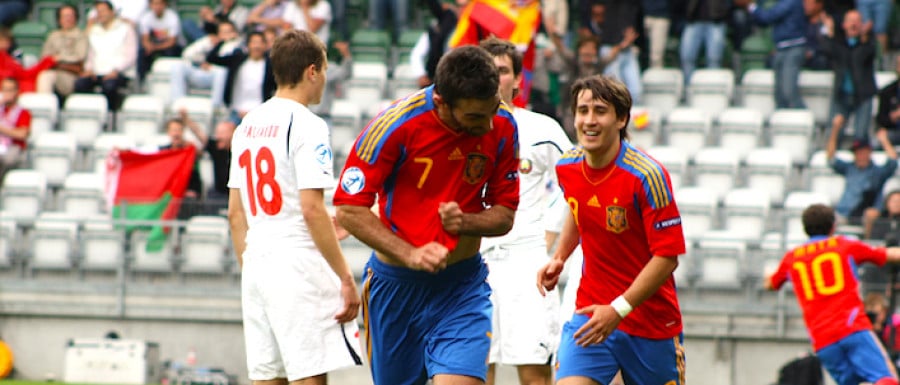Football player contracts - waiving training compensation

In accordance with Article 20 of FIFA’s Regulations on the Status and Transfer of Players, clubs who have trained a player between the ages of 12 and 21 are, as a general rule, entitled to training compensation when a player signs his first professional contract and each time a professional is transferred until the end of the season of the player’s 23rd birthday.
However, it is possible during negotiations for a club to waive their right to training compensation and it is vitally important for clubs who seek to rely on training compensation being waived to fully understand the legal requirements to ensure that a waiver is fully enforceable. It is also equally important for clubs who do not intend to waive their right to training compensation to ensure that they do not inadvertently do so.
According to jurisprudence of FIFA’s Dispute Resolution Chamber (“DRC”) a waiver can only be applied if it is “unmistakeable that the renouncing club had indeed intended to waive its right to training compensation"2 and there have been a number of cases involving disputes between clubs of different associations3 where the DRC has had to determine whether a club has indeed waived its right to training compensation.
Wording Should Be Specific
In DRC decision 67516, a club claimed that it was exempt from paying training compensation because the training club signed an internal document used by its football association which answered “no” under the heading “the club seeks compensation”. The DRC had doubts whether the training club had renounced its right to training compensation as the document was not an agreement between the two clubs, was drafted in very general terms and there was no mention of the transfer or FIFA’s regulations relating to training compensation. Training compensation was, therefore, payable.
A declaration from the training club that no more transfer fees are payable has also been deemed not to be a waiver by the DRC and also by The Court of Arbitration for Sport (“CAS”). In DRC decision 114461, Galatasaray claimed it did not have to pay training compensation because the player’s training club, MSV Duisburg, signed a document addressed to the player confirming “that the contract of … (the player) expires on 30 June 2002 and that no more transfer fees exist.” MSV Duisburg maintained that it did not waive its right to training compensation but only confirmed that no transfer fee was payable as the player’s contract had expired. The DRC agreed and held that the document was not a waiver because no specific reference was made to training compensation. The case was subsequently appealed to the CAS (see CAS 2005/A/811 Galatasaray SK v. MSV Duisburg) who upheld the DRC decision. The CAS held that all the circumstances of the case led to training compensation being due and that Galatasaray should have understood that the document only related to transfer fees or at least should have clarified this point with MSV Duisburg, particularly as the document was not addressed to the player and not them.
Similarly, a declaration by a club to the effect that a player has been granted a free transfer is also not sufficient to waive the right to claim training compensation. In DRC decision 115377, a club relied upon a letter addressed to the player’s agent from the training club’s vice president which, inter alia, said “the player will be free and out of contract.” The club understood this to mean that they would not have to pay any training compensation. The DRC unanimously rejected this argument and concluded that the letter “cannot in any sense abolish the Claimant’s entitlement to receive training compensation.”4 In DRC decision 9112744, a club opposed a claim for training compensation on the basis that the training club orally waived its right to receive training compensationduring the transfer negotiations. In support of its position, the club also relied upon a letter sent from the training club to the player confirming that the player was granted a “free transfer”. The DRC noted that the general topic of the letter was to inform the player “that he was free to move on and to join another club”5 and unanimously concluded that no element of the letter “could possibly lead to understand that the Claimant was renouncing to any other right(s) related to the player.”6
The CAS was also called to determine this issue in CAS 2009/A/1919 Club Salernitana Calcio 1919 S.p.A. v. Club Atlético River Plate & Brian Cesar Costa where Salernitana argued that River Plate waived its right to training compensation in a letter addressed to the player which stating the following:
“Dear Sir,
We write to you in order to inform you that this Entity has decided to give you the Free Agent Status in order for you to sign for the club of your choice. […]”.
The Panel rejected Salernitana’s argument as the letter contained no reference to the topic of training compensation.
To continue reading or watching login or register here
Already a member? Sign in
Get access to all of the expert analysis and commentary at LawInSport including articles, webinars, conference videos and podcast transcripts. Find out more here.
- Tags: Court of Arbitration for Sport (CAS) | Employment Law | FIFA | FIFA Dispute Resolution Chamber | FIFA Regulations on the Status and Transfer of Players | Football | Governance | Regulation
Related Articles
- Buy-out clause disputes under the FIFA Regulations – when to take action
- The jurisdiction of CAS in domestic football disputes – a potential pitfall
- Find out why Suarez's CAS appeal may succeed
- Refusal to delivery the ITC in international transfers of football players and free movement of workers within the EU - Entry B
Written by
John Shea
John is a senior associate in the Sports Business Group at Lewis Silkin specialising in contentious, regulatory and disciplinary issues for clubs, agencies, governing bodies and athletes

 Global Summit 2024
Global Summit 2024